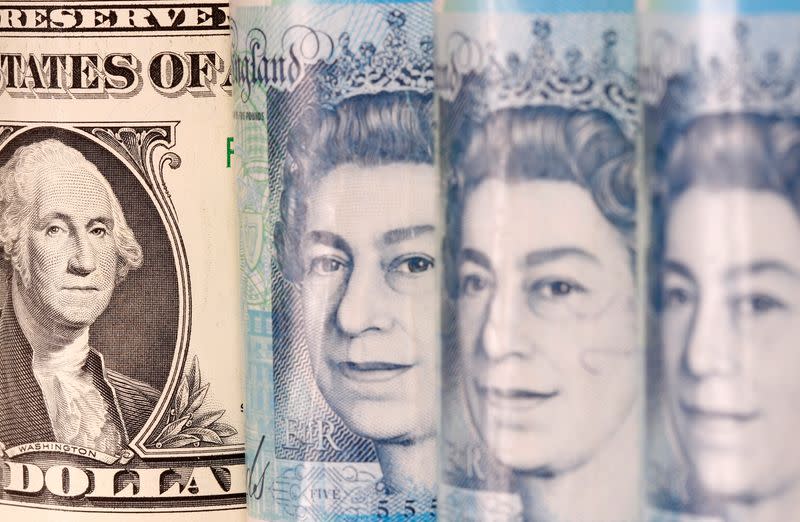Sterling, euro rally against dollar after BoE buys UK bonds

By Sinéad Carew and Alun John
NEW YORK/LONDON (Reuters) - After tumbling earlier, sterling rallied against the dollar on Wednesday following the Bank of England's (BOE) purchase of UK government bonds, letting some air out of the greenback's progress broadly after it had touched a fresh 20-year high.
The BoE said it received 2.587 billion pounds' ($2.78 billion) worth of offers in its first bond buyback operation aimed at stabilizing the market, and had accepted only 1.025 billion pounds' worth. The central bank had committed to buying as many long-dated government bonds, know as gilts, as needed between Wednesday and Oct. 14.
As markets tried to digest what the move meant for the pound, the currency whipsawed during Wednesday's session, jumping as high as $1.09165 and falling as low as $1.05390. It was last up 1.51% at $1.08921. [GBP/]
The BoE intervention was driving currency trading broadly, according to Erik Nelson, macro strategist at Wells Fargo.
"You had financial stress everywhere. The yields were rising and the dollar was rising. It was sort of feeding on itself. We needed something or someone to stop the financial stress and financial panic that was happening. The BoE stepped in there," said Nelson. "The easing of the financial stress has helped sterling and other currencies rally against the dollar."
But the relief for sterling may be temporary as the UK still has to deal with macro trends such as high inflation.
"It's a currency-negative policy. You're offering to limit the increase of yields at a time of high inflation," said Nelson. "The dollar will continue to go up over the next few months. ... The U.S. is growing at a much more solid pace, at least for now, versus the UK and Europe, and the U.S. doesn't have the same kind of energy crisis as the UK and Europe."
Currency investors have also been monitoring Russia's war against Ukraine and energy uncertainty in Europe after leaks on Nord Stream pipelines between Russia and Europe spewed gas into the Baltic Sea, said Brad Bechtel, global head of FX at Jefferies in New York. NATO Secretary-General Jens Stoltenberg and others have attributed the leaks to acts of sabotage.
The dollar index, which measures the greenback against a group of major currencies, was last at 112.660 after hitting a fresh 20-year high of 114.78.
While the dollar initially had broad-based gains, the greenback eased sharply as the U.S. trading session progressed, with the euro last up 1.52% at $0.9739 after falling as low as $0.95355.
The dollar was last down 0.61% against Japan's yen at 143.955 after touching a high of 144.860.
The Australian dollar, which is particularly sensitive to swings in investor sentiment, was last up 1.410%.
Elsewhere in Asia, the offshore yuan hit a record low, pressured by expectations of further U.S. rate hikes.
(Reporting by Sinéad Carew in New York, Rae Wee in Singapore and Alun John in London ; editing by Richard Pullin, Kim Coghill, Shri Navaratnam, Gareth Jones and Jonathan Oatis)

